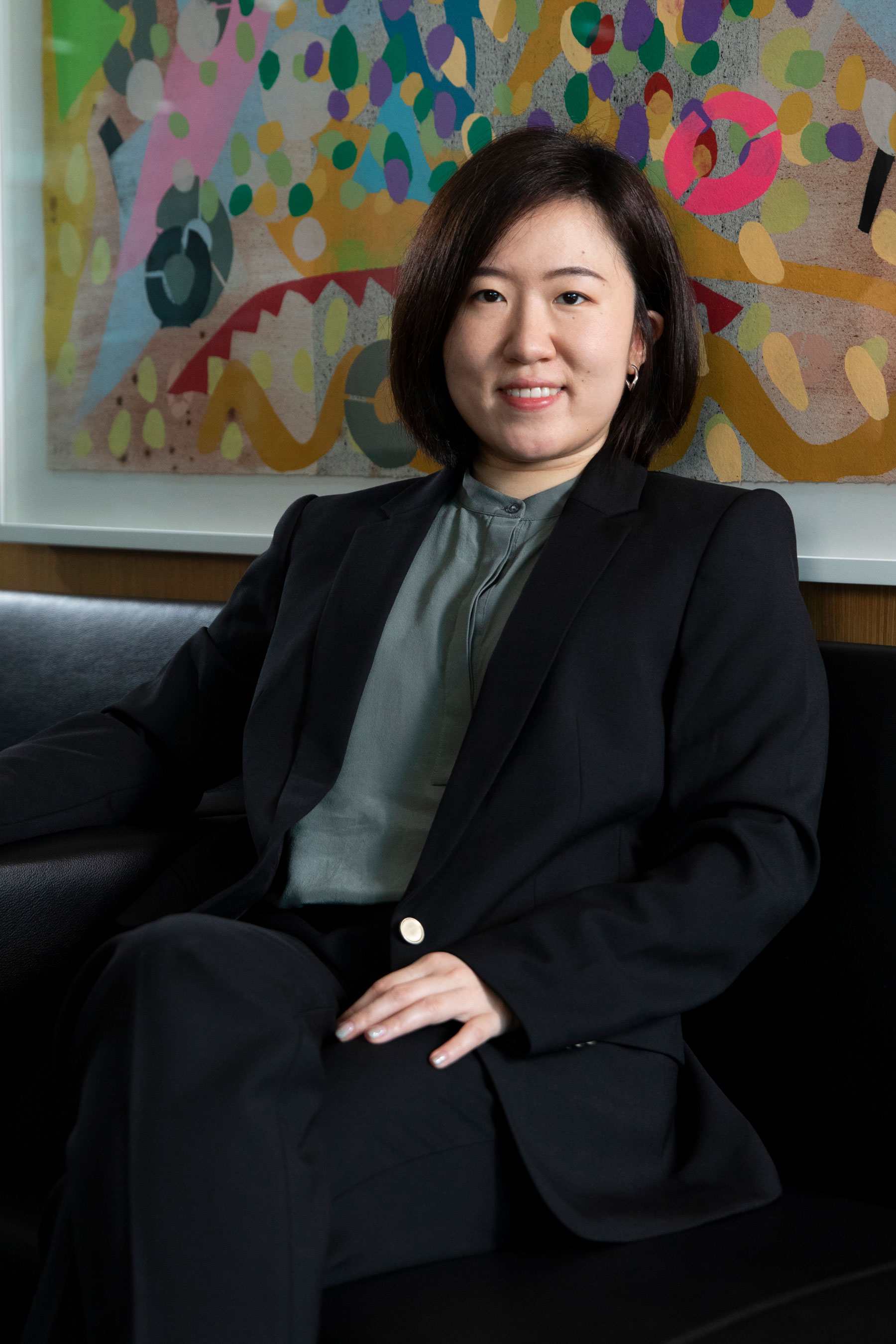Prof Yang Chenying

Feature on Yang Chenying, Assistant Professor of Economics
School of Economics, Singapore Management University
A Passionate Trade: Yang Chenying, Singapore Management University (SMU)
Assistant Professor Yang Chenying’s passion for international trade was sparked when she was just a little girl, inspired by stories her grandfather shared with her. Now, her research helps policymakers make better-informed decisions on carbon tax implementation for industries that are heavily exposed to international competition.
From the COVID-19 pandemic to the recent Russia-Ukraine war, the global supply chain has faced its greatest challenges yet in modern times—and they are often multifaceted.
With Ukraine being a major “breadbasket”, one of the most notable impacts of the war is the disruption to its agricultural export industry, which has sent ripple effects across global food supply chains. But the problem doesn’t end there.
“What many might not be aware of is that Ukraine is also a major exporter of automobile parts,” says Yang Chenying, Assistant Professor.
In particular, Ukraine specialises in producing the wire harness, with its exports accounting for seven percent of the product in the European Union. Due to the war, major European carmakers including BMW, Porsche and Volkswagen are now facing supply chain issues.
“When it comes to international trade, there are so much complexities due to how interconnected the modern world is—there is often more than meets the eye,” she adds.
Not all doom and gloom
Yang also explains that despite the media attention on how the COVID-19 pandemic has caused huge supply chain disruptions, to some extent, the issue has been overstated. “Data has shown otherwise. Despite the uncertainty in supply from China, the US container import volume has continued to set new record since March 2021. The supply chain has not broken down, at least in the US.”
So what is causing the delays in shipping and goods delivery? “It is mainly due to a substantial increase in demand,” she elaborates. “People are buying much more things than they were used to, and there are a couple of reasons for that. One, governments have been encouraging consumption through the distribution of subsidies. Second, people are starting to stock up on durable goods.” Notably, compared to pre-pandemic times, customers are increasingly purchasing specific products instead of consuming services.
“From the perspective of a trade economist, it’s really interesting when you get to the bottom of the issue and examine the dynamics of the different factors to realise how they come together,” Yang enthuses.
A lifelong passion rooted in childhood
On what inspired her to pursue the field, Yang shares that she grew up in a coastal city in China, where she used to always see container ships lined up at the port.
“From a very young age, I was filled with wonder about what was inside those containers, and where they were headed to. My grandfather would explain to me, in simple terms, how the world is connected through international trade,” shares Yang, who was inspired by those stories to pursue economics in school. “I wanted to be a trade economist. It’s a field I want to spend the rest of my life working in.”
A blending of purpose and passion
A current project of Yang looks at how multinational firms respond to carbon tax and how governments can use trade policies to combat climate change. She aims to quantify the magnitude of “carbon leakage”—which happens when businesses relocate their productions to another country with more lax emission constraints when they encounter higher operational costs as a result of government policies.
Yang explains that carbon leakage will hurt the welfare of the taxing country, and even more so if firms in the taxed industry hold significant market power. “Governments should be careful in deciding which industry to impose carbon tax and by how much,” she says. “Trade policies such as carbon border adjustment can help to correct some market failures caused by carbon leakage. But ultimately, we need international coordination in efforts to fight carbon emissions.”
Prior to joining academia, Yang was a consultant at the Asian Development Bank. Elaborating on the work she did there, Yang explains that many countries in the region play important roles in completing certain tasks along a global value chain, as firms in the US or Europe often outsource aspects of their production to factories here. “We came up with a measurement to quantify the statuses of specific Asian economies in the global value chain, the degree to which they are integrated in various sectors, and what can be done to help these developing economies move up the value chain,” she shares.
Asia’s way forward
Home to 60 percent of the youths of the world, Asia is a key driver of the global economic development moving forward, according to Yang. “There are a few key areas in which I believe Asian economies could contribute significantly,” she says. “These include the development of greener technology, as well as ensuring the political stability and safety of domestic economies in order to remain attractive to foreign investors.”
Yang also highlighted the importance for countries in the region to invest in the infrastructure sector. “Take Singapore for example; its consistent investments in maintaining and transforming its infrastructure is one of the main reasons why the country as a global trade entrepot has been successful in tackling supply chain disruptions,” she adds.